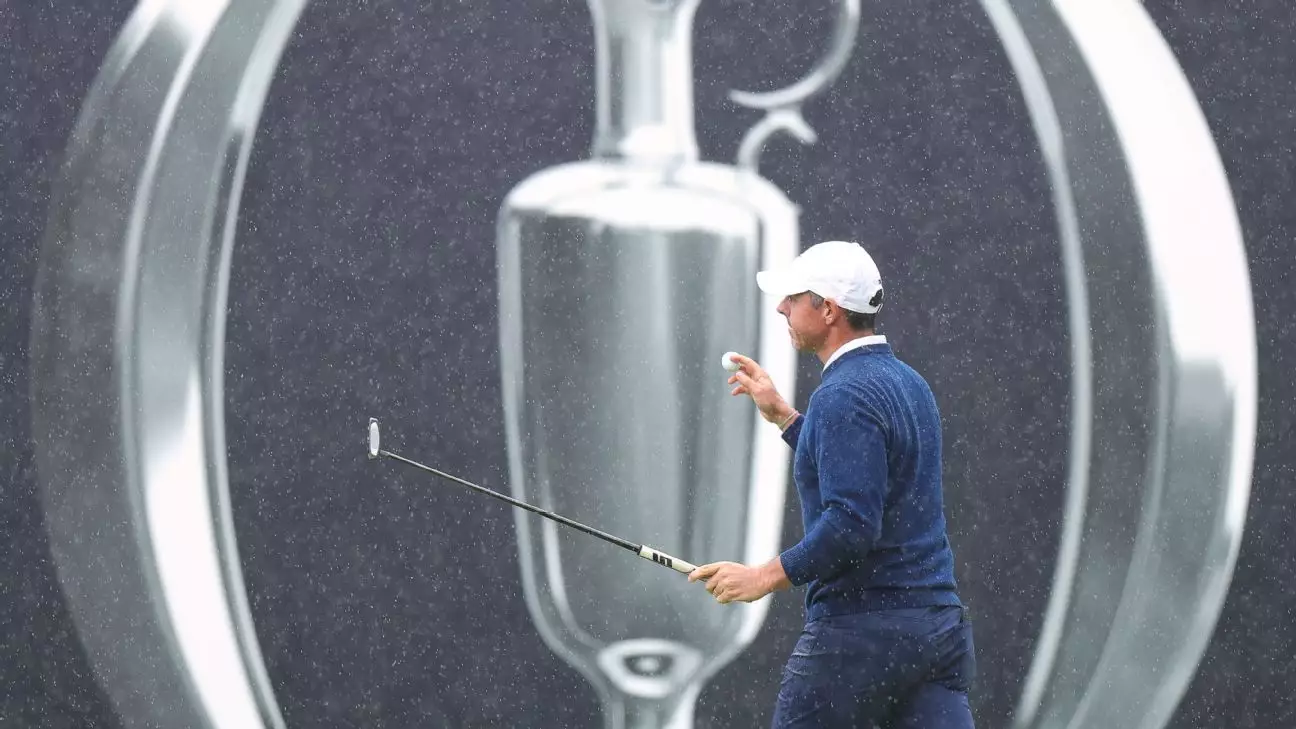Rory McIlroy’s recent performance at Royal Portrush ignites a compelling narrative about resilience in the face of personal and professional setbacks. His resurgence six years after missing the cut at his home Open Championship exemplifies a resilience that transcends mere athletic performance. Far too often, sports narratives focus solely on triumph, neglecting the profound mental toll that setbacks impose. McIlroy’s acknowledgment of past disappointment reveals an internal battle—a struggle with self-doubt, frustration, and the relentless pressure to meet expectations rooted both in his personal ambitions and national pride.
His comment about feeling he let himself down more than the fans in 2019 underscores a vital truth: victory is as much a mental conquest as a physical feat. Athletes like McIlroy are often portrayed as nearly invincible, but their vulnerability—especially when confronting public scrutiny and personal disappointment—merits recognition. The process of rebuilding confidence, refining technique, and maintaining psychological stability is rarely spotlighted but arguably forms the core of their eventual success. It is critical to question whether the media and fans give enough mental health support and acknowledgment to athletes navigating these internal hurdles.
National Identity and the Power of Symbolism
The context of McIlroy’s achievement extends beyond individual excellence—it is intertwined with national identity and collective pride. Returning to Royal Portrush and performing under the watchful eyes of the Irish crowd presents not just a sporting challenge but a symbol of cultural resilience. In regions with complex histories like Northern Ireland, sport often becomes a vessel for collective identity, unity, and even political expression. McIlroy’s words about how the Irish fans rallied behind Shane Lowry six years prior and now support him again encapsulate this phenomenon.
This dynamic raises an important question about how national pride influences athletic performance. While supporters can propel athletes to new heights, they can also impose tremendous pressure. McIlroy’s reflection on the “atmosphere” and the expectations of the crowd highlights the fine line between motivation and burden. A passionate populace can be a double-edged sword—fostering a sense of duty and belonging but also risking instigating feelings of inadequacy if expectations aren’t met. The real challenge lies in harnessing this collective energy to elevate the athlete without overwhelming their mental faculties.
The Bias Toward Heroism in Sports Media
The media portrayal of athletes like McIlroy often cultivates an idealized hero narrative, glossing over the imperfections that make these figures relatable. An analysis of the coverage reveals a tendency to emphasize the glory—birdies, leadership, telegenic moments—while underreporting the discomfort, fatigue, and internal struggles. This selective storytelling can skew public perceptions, creating an unrealistic standard that contemporary athletes are supposed to embody flawless perfection.
Moreover, it encourages a culture of relentless self-criticism among athletes. McIlroy’s admitted need to “have it all firing” over the weekend reflects an awareness of the fine margins separating success and failure at elite levels. This pressure—fuelled by media narratives that elevate winners as paragons—can have detrimental effects on athletes’ mental health, fostering anxiety, burnout, and feelings of inadequacy. A more nuanced journalistic approach would acknowledge the human vulnerabilities latent within the pursuit of greatness, promoting a healthier dialogue about athletic achievement.
Implications for the Center-Left Political Perspective
From a center-wing liberal viewpoint, McIlroy’s journey underscores the importance of supportive structures—mental health resources, community backing, and fair media representation—to foster genuine resilience. Society has a tendency to idolize athletes, overlooking the systemic issues that impact their well-being. The emphasis should shift toward creating an environment where athletes are appreciated not just for their victories but also for their struggles.
We must advocate for comprehensive mental health initiatives integrated into sports organizations and community programs that recognize the exhaustive psychological demands placed on competitors. Celebrating resilience like McIlroy’s is vital, but it should be complemented with efforts to destigmatize mental health challenges, ensuring that athletes receive the support needed to navigate their internal battles. The true power of sports lies not just in external triumph but in fostering personal growth amidst adversity—a narrative that society, political institutions, and media must embrace more conscientiously.
Despite the glamour and the crowds, the real story is about perseverance, societal responsibility, and our collective role in fostering environments that nurture mental well-being. McIlroy’s comeback is inspiring, but it also calls onto society to provide the necessary scaffolding for resilience—so that athletes can thrive both on and off the fairways.

